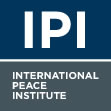Resource Library
Conflict Resolution & Stabilization | Iran

Iranians Want Nuclear Arms, US Survey Finds
International Peace Institute | December 8, 2010 | 4 pages
December 8, 2010 – Iranians want nuclear weapons and reject proposed international deals to restrict production of enriched uranium, but they are anxious about the international sanctions and isolation their country faces, a new poll has found.
The polls were made public today at the International Peace Institute by the pollster, Craig Charney, President of Charney Research and IPI Senior Adviser. The results can be found on IPI’s website.
Seven in ten Iranians favor their country developing and possessing nuclear weapons. Support for nuclear arms has risen almost 20 points in the past 18 months, as the international confrontation over Iran’s nuclear program has deepened. Nuclear development is favored by both pro- and anti-government Iranians.
The Iranian public also opposes two proposed international agreements to halt or slow Iran’s nuclear program. The so-called “Grand Bargain” – Western security guarantees and trade normalization in return for an end to uranium enrichment, nuclear inspections, and concessions on Afghanistan, Iraq, and Palestine by Iran – is opposed by 55% to 27%. The recent Turkish- Brazilian deal, intended to slow the program and offer more time for talks by shipping half of Iran’s enriched uranium abroad, was opposed by 39% to 34%, with one in four Iranians unsure.
Iranians are divided on the impact of economic sanctions imposed in response to the nuclear program, with roughly half thinking they have had an impact. Far fewer – just one in six — thinks there is any likelihood America or Israel will attack their nuclear facilities.
“Support for a deal is stronger among Iranians who think sanctions are hurting or that there is a chance of a U.S. or Israeli attack,” said Dr. Charney. “But not enough believe that to produce a majority for either deal.”
However, Iranians are concerned about the pressures on their country due to its nuclear program: 53% cite sanctions, isolation, or Iran’s image as its chief foreign policy problem. The economy worries them too: three-fourths complain of shrinking or stagnant incomes.
While Iran’s leaders are widely seen seeking regional hegemony, its public would prefer to focus on domestic needs by a margin of two to one. Moreover, while three-fifths support aid
to the anti-Israel Palestinian Hamas and Lebanese Hezbollah Islamic resistance movements, three-fifths would also accept a two-state agreement between Israelis and Palestinians.
The poll found that, by a massive three-to-one majority, Iranians want closer ties to the West, not reduced links. They also support Western criticism of Iranian human rights violations and aid to Iranian non-governmental organizations.
Despite their desire for closer ties, however, as tensions have risen on the nuclear issue, Iranians have felt spurned by the West. Almost nine-tenths are now hostile to America – a 40- point increase on 2008 — while 55% are unfavorable to Europeans.
“Iranians want closer ties to the West and their nuclear program too. They haven’t understood yet that they can’t have both,” says Dr. Charney.
The leaders of Iran’s opposition Green Movement are favored by roughly one-third of Iranians, the poll found, similar to their results in the 2009 Iranian presidential election. The poll also found that Iranian president Mahmoud Ahmedinejad received 60% of the vote in that election, close to the official result, despite widespread charges of election fraud.
Majorities of Iranians supported the post-election crackdown on opposition and continue to support the theological foundations of their regime, the poll found. However, half are critical of the Ahmedinejad government’s performance and expect further democratization of their government in the next decade.
The poll was conducted in early September by telephone in Farsi, from a phone bank in Istanbul, among a representative national sample of Iranians. (More than 85% of Iranians have telephones.) The margin of sampling error was 3.7%.
The International Peace Institute is an independent, international think tank located at 777 United Nations Plaza, dedicated to the settlement and prevention of armed conflict.
